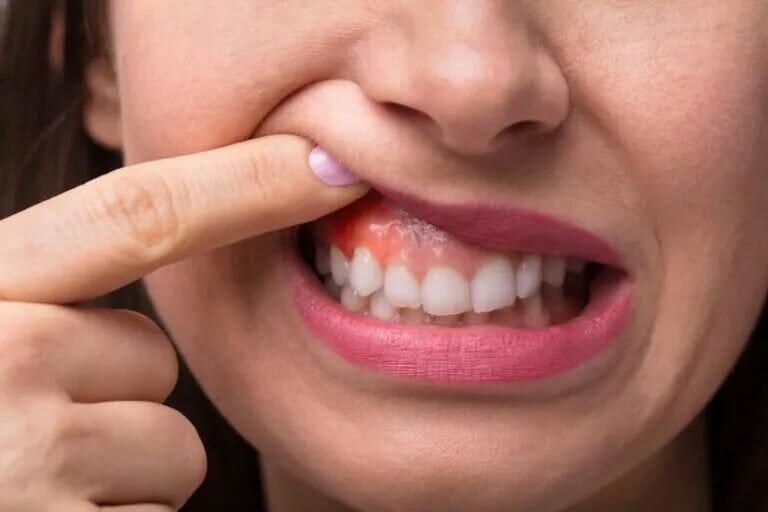We offer emergency dental care in Waterloo. If you're dealing with a painful tooth, inflamed gums, a broken filling, or any other oral health issues, reach out to us immediately!
At Enamel Republic, we frequently utilize our lunch breaks to tend to dental emergencies for those in the Waterloo area. This dedication allows us to attend to dental emergencies often on the very day they arise. If you're new to our facility, fear not. We warmly welcome both new and emergency dental patients.
We're also a proud member of the emergency dental service organized by the Kitchener-Waterloo Dental Society. This ensures our patients have access to after-hours emergency dental care, be it with Dr. Hornby or other local emergency dentists in the region.
What is Considered an Emergency?
Dental emergencies are typically characterized by pain, infection, or swelling of the teeth and gums. However, they can also encompass trauma to the teeth, gums, or jaws. Frequently, we meet patients at our dental office concerned about changes in other parts of their mouth (like the cheeks, tongue, palate, throat, and tonsils). As a general rule, if you have any concerns regarding your oral health, we'll set up an emergency consultation.
Please don't hesitate to call us for any oral health issues, and we'll be more than willing to provide consultation or an emergency appointment!
In dentistry, specific symptoms stand out as emergency indicators. Below, we delve into some of the most frequent emergency situations we encounter:
Sensitivity or Toothache

Should you suddenly face increased sensitivity to different stimuli (be it pressure, temperature, or even certain foods) and it's not due to recent dental work, it's crucial to get an assessment from our emergency dentist. Sensitivity, particularly after dental procedures like fillings, can often last a few weeks before dissipating. Yet, in some instances, it might be indicative of a cavity requiring treatment. Sometimes, the cause might just be gum recession, which may not necessitate treatment.
It's important to understand that dental discomfort doesn't always demand intervention. But it's always wise to have a professional determine the best course of action.
Pressure or a toothache could be a sign of an infection or abscess in the gums or teeth. In some instances, the cause might be linked to grinding or clenching of the teeth.
If you're experiencing any of the above, please contact us to get a detailed assessment and the necessary help.
Helpful Tip: For sensitivity issues, consider using Sensodyne or Colgate Anti-Sensitivity toothpaste. For a more natural option, opt for Risewell Hydroxyapatite toothpaste.
Swollen Gums?

Swelling in specific regions can often be attributed to infections in the gums or teeth. Any form of swelling, especially if pus is present, necessitates immediate attention. In the short term, antibiotics can help, but definitive treatment, like root canal procedures or tooth extraction, might be necessary for long-term relief. For severe swelling, especially if it spreads towards the eye or under the jaw, it's advised to seek immediate medical attention.
Broken or Detached Orthodontic Wires, Brackets or Retainers
Detached orthodontic brackets or wires can cause discomfort by scratching or even cutting into the oral soft tissues. In such cases, contact us to address the issue.
Helpful tip: Consider purchasing orthodontic wax from a pharmacy to cover any sharp edges.

Call our Waterloo Family & Emergency Dental Clinic at (519)-576-8160 Or Schedule Your Appointment Online.
Broken or Fractured Tooth?
Most broken teeth can be fixed with a simple filling or crown. However, in severe cases, the damage might be so extensive that tooth extraction is the only viable solution. To prevent further discomfort, avoid chewing on the affected side and keep away from extreme temperatures.
Helpful Tip: For alleviating pain from a broken tooth, apply Clove Oil. If the broken tooth has sharp edges, orthodontic wax can be applied to prevent cuts.
Tooth Trauma or Lost Tooth?

Dental trauma can be a concerning experience for parents, especially when it involves their children. In moments of active play, like sports or the early walking stages, children often suffer from accidents that impact their teeth.
When such an accident happens, the first and most important step is to seek an immediate dental examination. The dentist will check the affected area and determine the necessary steps for recovery. If the child's tooth has become loose or mobile due to the impact, the dentist might recommend splinting. This procedure involves stabilizing the affected tooth by attaching it temporarily to its neighbors, allowing it to heal over time.
Interestingly, the approach to handling trauma differs between baby and adult teeth. If your child's baby tooth gets knocked out due to an accident, it's vital to resist the urge to put it back in its place. This is because replanting a baby tooth can lead to ankylosis, a condition where the bone grows directly against the tooth root, complicating the natural emergence of the adult tooth. Instead, after such an event, it's best to clean the knocked-out tooth, store it in a container filled with milk, and rush to the dentist for a thorough assessment.
For older children or adults with permanent teeth, a different approach is required. If trauma causes an adult tooth to loosen but it remains in its socket, the dentist might consider splinting to stabilize it. This ensures proper healing of the gums and the periodontal ligament around the tooth's root. In some cases, a root canal might be necessary, especially if there's a potential for infection or further damage. It's also recommended to avoid putting any pressure on the injured tooth, like biting or chewing, to allow it to recover. However, if the adult tooth is knocked out completely, it should be cleaned gently, stored in milk, and brought to the dentist as soon as possible.
In all scenarios of dental trauma, prompt action and immediate consultation with a dental professional can make all the difference in ensuring the best outcome for the injured tooth.
Jaw Pain, Stiffness and/or Clicking
Jaw pain, stiffness, or even clicking can be concerning. If these symptoms emerge post facial trauma or if they persist, it could be linked to Temporomandibular Joint Disorder (TMD), often associated with teeth grinding.
Helpful Tip:
Dealing with jaw discomfort or limited movement can be a challenge, but there are several methods to alleviate the symptoms and promote healing.
Engaging in gentle exercises designed to stretch the jaw can aid in reducing stiffness and enhancing the range of motion. By doing so, you allow the jaw to regain its flexibility over time.
If you find your jaw feeling particularly stiff, applying a warm compress can be beneficial. The warmth from the compress promotes muscle pliability, making it easier for the jaw to stretch and open, thereby reducing discomfort. Conversely, if the pain feels more inflammatory or acute, a cold compress might be more effective, as it helps in soothing the affected area.
For those experiencing significant discomfort, over-the-counter anti-inflammatory medications can be considered. However, it's essential to remember that this should only be a temporary solution, and prolonged use should be avoided.
For individuals who already have a night guard, wearing it more frequently can also be advantageous. The guard provides a cushioning effect, preventing further strain or damage to the jaw.
Dietary choices can also play a role in managing jaw discomfort. It's wise to steer clear of foods that put additional strain on the jaw, such as hard-to-chew items like steak, gum, or toffee.
Lastly, a gentle massage targeting the muscles responsible for opening and closing the jaw, like those located in the cheeks and temples, can be incredibly soothing. This massage not only relaxes the muscles but also promotes blood circulation, which aids in healing.
By combining these methods and consulting with a healthcare professional, one can effectively address jaw discomfort and promote healing.
Food Stuck under Your Gums
Though it might seem trivial, food particles, especially hard ones like popcorn kernels, can cause pain or even lead to infections.
Helpful Tip:
Floss or a Waterpik can aid in removing the trapped particles. Avoid using sharp objects to avoid further damage.
Sometimes, after dental procedures, patients may experience complications like prolonged sensitivity, a misaligned bite, or "dry socket" post-extraction. Always consult
Post-Operative Sensitivity
Experiencing sensitivity after receiving new fillings is a standard reaction. Such sensations can arise from various dental procedures, especially those where natural tooth structure is removed. When treating cavities or preparing a tooth for a crown, the tooth's nerve might become irritated, leading to temporary sensitivity. If the treatment involved addressing a deep cavity close to the tooth's nerve and the sensitivity persists, it may indicate a need for further treatment. Otherwise, such post-procedure sensitivities usually resolve on their own. If you continue to experience discomfort after two weeks, consider revisiting your dentist.
A "High" Bite
Another potential post-procedure concern is the sensation of a "high" bite. After placing a dental filling, your dentist ensures that your bite remains unaffected. However, detecting minor misalignments can be difficult while under local anesthesia. If you feel an irregularity after the numbness wears off, like biting on something hard when closing your teeth, it's a good idea to contact your dentist for an adjustment.
Dry Socket after Tooth Extraction
"Dry socket" is another term you might hear, especially after a tooth extraction. It's a condition where the initial clot that forms post-extraction gets dislodged, exposing the bone and nerves. This condition can cause a persistent burning ache. If you suspect you have a dry socket, especially after wisdom tooth removal, it's essential to consult your dentist.
Update (Sept 23rd, 2021): Additional Tips for Managing Dental Emergencies
While most dental emergencies are likely to require treatment, many can be improved or made more comfortable by suitable at home management.
Below, we've provide some tips and helpful information for increasing your comfort as you cope with your dental emergency.
Managing Soft Tissue Injuries
Soft Tissue Injuries: Injuries to the lips or cheeks can occur alongside dental injuries. Such injuries need careful attention. A dentist might clean the wound and possibly recommend antibiotic ointments. It's also not uncommon for children who've undergone dental procedures to accidentally bite their numb cheeks or lips, leading to further discomfort once the anesthesia wears off. Parents are advised to monitor their children and discourage them from biting their lips or cheeks after treatment.
Managing Dental Pain
Managing Dental Pain: Dental emergencies often come with discomfort. The pain can either be due to inflammation or infection. In many instances, over-the-counter anti-inflammatory drugs like Advil or Motrin can be helpful in managing such pain. However, always consult a professional before choosing any medication.
Note: Consult a Dentist, Pharmacist or Physician before choosing an over-the-counter pain medication.
Will an Emergency Dentist extract teeth?
Emergency Dental Services: Not all dentists offer emergency dental services, but if you find yourself in need, some institutions provide them, such as the Enamel Republic. They offer both simple and surgical extraction services.
Will a Hospital Treat My Dental Emergency?
Hospitals might not always have an in-house dentist. Often, they might refer you to an external dental professional for emergencies. Depending on the nature of the dental issue, insurance coverage might vary.
Will OHIP Cover My Emergency Dental Costs?
This is a commonly asked question. Typically, purely dental emergencies, such as a dental abscess or broken tooth, require treatment that won't be covered by OHIP.
In some cases where the dental emergency involves a jaw fracture or major trauma injury, your treatment may be covered by OHIP. In many of these cases, your emergency dental situation will be resolved in a hospital setting.
Is there an Emergency On-Call Dentist for Waterloo Region?
Yes!
For residents of the Waterloo Region, the Waterloo-Wellington Dental Society (WWDS) provides an emergency service outside regular business hours.
To access the phone number for the Waterloo region emergency on-call dental service, call your family dentist and they'll have the emergency on-call number on their voicemail (note: your Dentist is required to be an actively participating member in the on-call service for you to have this benefit).
Understanding and being prepared for potential dental issues can help ensure your oral health remains in optimal condition. Always keep in touch with your dental professional for guidance and care.
Emergency dental examinations (not including any required treatment) are billed according to the Ontario Dental Association Fee Guide. The 2019 Fee Guide suggests a cost ranging from $45 – $130, depending on the length of time required to provide a proper assessment. Radiographs (X-Rays) are an additional cost typically in the $30 – $80 range depending on the number and type of image required.
These are purely assessment cost estimates and do not include the cost of potential necessary treatments. Best practice is to call your local dentist's office or family dentist and inquire about fee ranges and estimates on emergency dental services. It is also advisable to obtain a cost estimate in advance of any necessary treatment.
